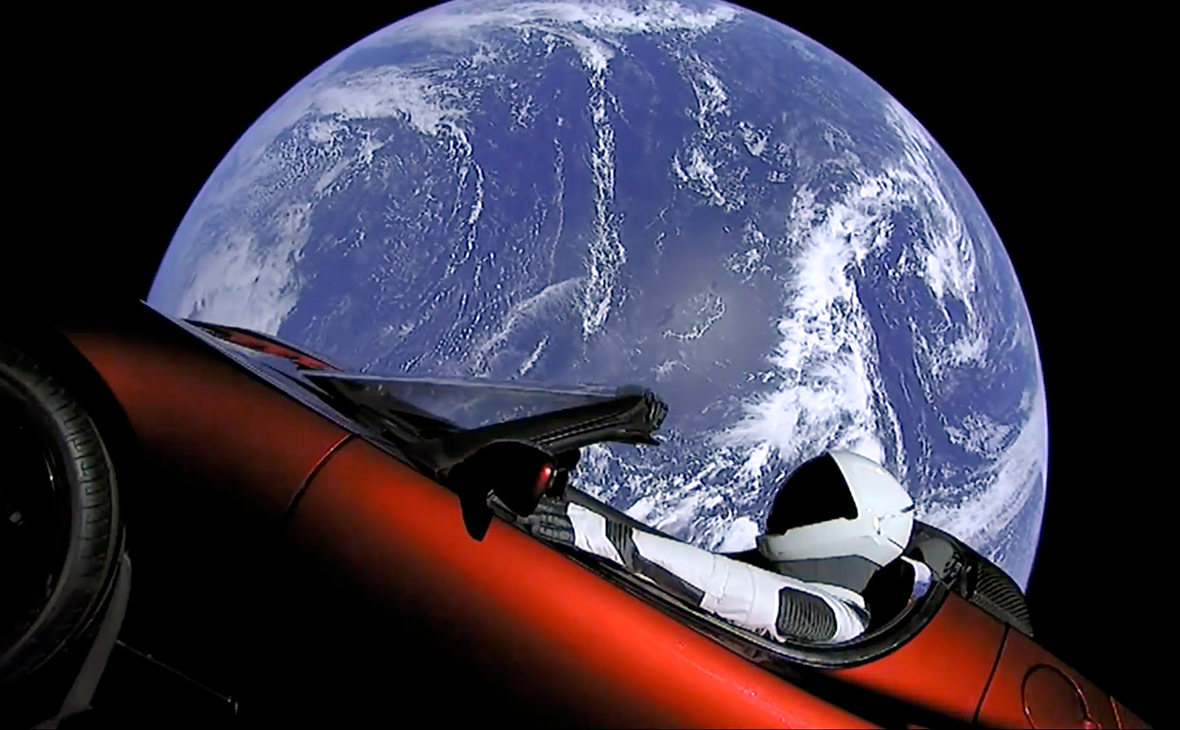Чемодан Samsonite сбросили из стратосферы
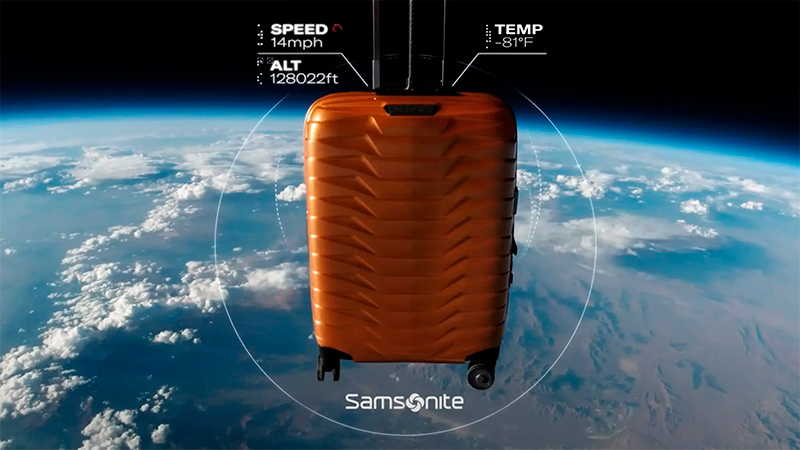
Я, кстати, большой поклонник чемоданов Samsonite, пользуюсь ими много лет. У меня есть огромный Samsonite Inova, который весит всего 5,5 кг, у меня есть мой основной Samsonite Cosmolite, также у меня есть заслуженный небольшой салонный Samsonite, с которым я езжу постоянно. И жене я купил Samsonite Cosmolite. И на фабрике у них побывал - это было очень интересно.
Так вот, компания Samsonite выпустила новую модель Samsonite Proxis Global Carry-on Spinner (стоимость порядка $425), и они ее с помощью стратосферного шара отправили на высоту в 40 километров, где температура составляла -65°C, и откуда чемодан сбросили: он летел со скоростью свободного падения (в ролике видно, что его скорость составляет где-то 140-150 км/ч), и где-то в километре от Земли раскрылся парашют, после чего чемодан благополучно приземлился на гору в Лас-Вегасе.
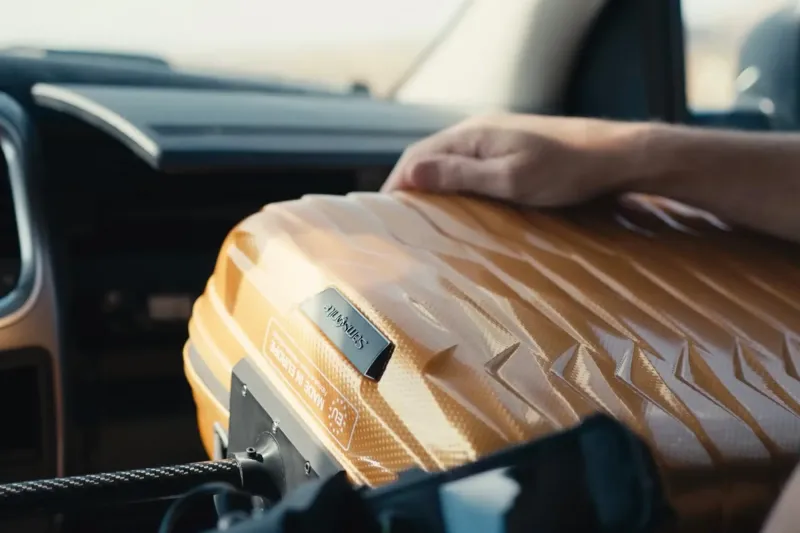 Этот чемодан после приземления
Этот чемодан после приземления
Данный чемодан считается самым легким и прочным продуктом компании - его вес составляет всего 2,1 кг. Внешняя оболочка изготовлена из Roxkin, материала, созданного специально для бренда, который является перерабатываемым, многослойным и высокоэластичным.
Весь процесс был заснят на видео.
С парашютом - низачет. Вот если бы без...
там есть место не только для Маска
на взничь
и взничь поцеловала его в крышку.
Вот - Rimova. Цена начинается от $2500. Презерватив из целофана который одет сверху - $200.
А насчет чемоданов. Мы приехали с 6-ю чемоданами и уехали с 6-ю чемоданами - два в багаж, один - в кабину
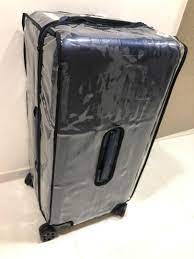
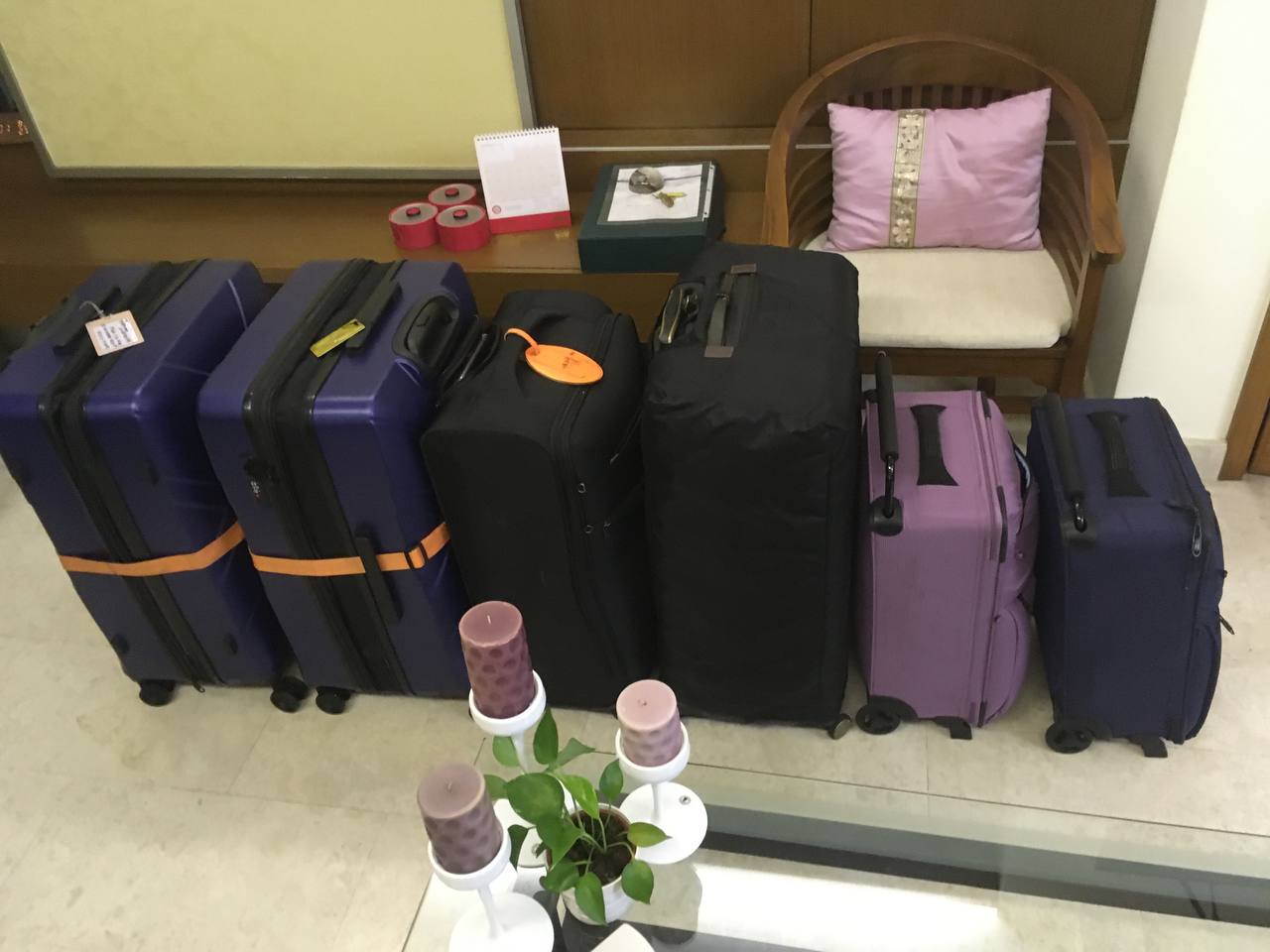
Мы приехали с 6-ю чемоданами и уехали с 6-ю чемоданами
Unlimited
A Novel in Decades
Prologue
The universe, as it turns out, has a sense of humor. A rather dark one, if you'll pardon the pun. For billions of years, it had been expanding itself using this mysterious force called dark energy, presumably just to mess with physicists' heads. Then one day, a bunch of humans figured out how to tap into it for power, essentially turning the cosmic joke into free electricity.
This is that story.
Chapter 1: The Discovery (2024-2030)
In Which Humanity Discovers Free Energy and Promptly Freaks Out
Dr. Sarah Chen was having a terrible morning. Her coffee maker had broken down, her car wouldn't start, and her lab's power supply was acting up again. In retrospect, these minor inconveniences would later be seen as the universe's last desperate attempt at irony before she accidentally solved humanity's energy problems forever.
"Pass me that voltmeter, will you, Dave?" Sarah called out to her graduate student, who was doing what graduate students do best – looking busy while secretly playing Wordle on his phone.
"Sure thing, Dr. Chen," Dave replied, accidentally knocking over a mysterious device they'd been working on for months. The device – which looked suspiciously like a car battery that had mated with a lava lamp – crashed to the floor.
Instead of breaking, it started humming. And glowing. And producing enough energy to power a small city.
"Dave," Sarah said slowly, staring at her energy readings, "either this meter is broken, or we just figured out how to harvest dark energy."
"Cool," Dave replied, still trying to figure out if 'QUARK' was a valid Wordle guess. "Wait, what?"
The next few months were a blur of peer reviews, press conferences, and increasingly panicked calls from oil company executives. The device, dubbed the Dark Energy Converter (or DEC, because scientists love their three-letter acronyms), was verified to work by increasingly bewildered physicists worldwide.
At the Nobel Prize ceremony, Sarah's acceptance speech was interrupted by a Saudi oil minister offering to buy the patent for "all the money in the world." She declined, largely because she'd already uploaded the designs to GitHub under an open-source license.
"But... but... the economy!" spluttered various financial experts.
"The environment!" cheered environmental activists.
"My retirement fund!" wailed energy sector investors.
"My job security!" worried everyone else.
Meanwhile, Elon Musk tweeted that he'd invented it first but forgot to tell anyone. Nobody believed him.
Chapter 2: The Great Transition (2030-2040)
In Which Everything Changes, Except Human Nature
By 2035, the world had more DECs than it had streaming service subscriptions. This was particularly impressive considering that Netflix had just launched its 47th spinoff service, "Netflix Pets: Content Your Cat Can Ignore."
The transition wasn't without its hiccups. Traditional power companies tried everything to stay relevant, including a memorable advertising campaign suggesting that paying for electricity was somehow more authentic than getting it for free. This went about as well as trying to sell ice to Eskimos who owned freezers.
Airlines quickly adapted to the new technology, though some budget carriers initially tried to charge extra for "premium dark energy seating." This practice was abandoned after passengers pointed out that dark energy, being dark, couldn't possibly be premium.
The shipping industry's conversion to DEC power led to an unexpected crisis when pirates realized they couldn't dramatically board electric ships by swinging on ropes between masts anymore. A support group was formed to help them transition to more contemporary methods of maritime crime.
Chapter 3: The Infrastructure Revolution (2040-2050)
In Which Humanity Finally Fixes the Plumbing
With unlimited energy at their disposal, humans did what humans do best: they overengineered everything. Cities installed atmospheric water generators on every corner, leading to the first-ever municipal flooding caused by excess drinking water production. The city council of Phoenix had to officially declare itself "adequately hydrated, thank you very much."
Vertical farms sprouted like, well, plants. Traditional farmers watched in bemirement as former software developers tried to explain concepts like "agile farming" and "sprint harvesting" to their crops.
The first permanent lunar base was established in 2047, immediately followed by the first lunar homeowners' association complaint about improper airlock decoration.
Мои вещи были в 2-х чемоданах из 6-ти. Остальные - ее.
Где, где почитать дальше?
In Which Free Energy Fails to Make People Less Weird
By 2050, the concept of "energy poverty" had become as obsolete as phone books and NFTs. This led to some interesting social experiments, like the small town in Minnesota that decided to use its unlimited energy supply to maintain a permanent summer temperature of 72°F (22°C) in a dome over the entire municipality. The project worked perfectly until migrating geese, confused by the tropical bubble in the middle of their flight path, decided to take up permanent residence.
Dr. Sarah Chen, now in her late 60s but looking remarkably spry thanks to DEC-powered medical technologies, watched these developments with a mixture of pride and bewilderment. She had recently turned down the position of "Global Energy Goddess" (a title several new religions had tried to bestow upon her) and instead focused on teaching physics to a new generation of students who couldn't quite grasp why anyone had ever paid for electricity.
"But Professor Chen," asked one particularly confused freshman, "if people used to pay for energy, does that mean they also paid for water?"
"Yes, they did."
"Next you'll tell me they paid for music!"
Sarah decided not to blow the kid's mind with tales of CDs and iTunes.
The Universal Basic Services program rolled out across most nations, though Switzerland notably held out until 2057, claiming they needed time to properly organize the paperwork. When they finally implemented it, it was the most efficiently run system in the world, to nobody's surprise.
Chapter 5: The Space Age Begins (2060-2070)
In Which Humanity Discovers That Space Really Is Big
The first rotating space station was inaugurated with a ceremony that went perfectly until someone realized they'd forgotten to account for the Coriolis effect when trying to cut the ribbon. The resulting video went viral across both Earth and Lunar social networks, leading to the first interplanetary meme war.
The lunar population grew rapidly, though real estate agents faced unique challenges:
"Location, location, location!" became "Radiation, radiation, radiation!"
"Cozy starter home" became "Pressurized starter dome"
"Open concept living" became "Please don't open anything, you'll die"
Mars colonization proceeded apace, though the first settlers were disappointed to discover that having unlimited energy didn't make the red planet any less red. Several attempts to terraform small areas led to the creation of what became known as "Mars' Slightly Less Red Spots."
The Jupiter mission of 2068 marked humanity's first attempt at long-range space travel with DEC power. The mission commander, one Dave Chen Jr. (yes, related to that Dave from the original discovery), began his historic journey with the words: "Well, at least we won't run out of juice halfway there." Mission Control didn't have the heart to tell him that this quote would be repeated in history books forever.
Chapter 6: The Environmental Renaissance (2070-2080)
In Which Earth Gets Its Groove Back
By 2070, Earth had become so clean that young people didn't believe stories about the "old days" of pollution. The Great Pacific Garbage Patch had been cleaned up and transformed into a floating resort called "Plastique Paradise," which everyone agreed was in somewhat poor taste.
The Great Barrier Reef, saved by DEC-powered pH regulation systems, became so healthy it started expanding beyond its traditional boundaries. Australian authorities had to politely ask it to stop trying to reach Tasmania.
Underground transportation networks flourished, though they hit a slight snag when several tunnel-boring machines, operating autonomously with unlimited power, got carried away and created an unauthorized subway to New Zealand. The Kiwis, being Kiwis, simply put up a sign saying "Welcome to Unexpected Zealand" and started charging for tours.
Chapter 7: The Transhuman Shift (2080-2090)
In Which Humans Upgrade Themselves and Their Sense of Humor
Brain-computer interfaces became commonplace, leading to the first documented case of someone trying to "ctrl+z" an embarrassing real-life situation. It didn't work, but the attempt was appreciated.
Life extension technologies made age a matter of choice rather than destiny. This led to some awkward situations at birthday parties:
"How many candles should we put on Grandma's cake?"
"Biologically or chronologically?"
"Either way, we're going to need more cake."
The first antimatter production facilities opened, immediately followed by the first antimatter safety protocols, which primarily consisted of large signs reading "WHATEVER YOU DO, DON'T DROP IT."
Chapter 8: The Interstellar Dream (2090-2100)
In Which Humanity Prepares to Bother Other Stars
The development of DEC-powered antimatter drives promised to reduce interstellar travel times dramatically. The marketing department suggested the slogan "Alpha Centauri: Now Only 20 Years Away!" but was overruled in favor of "Space: It's Still Really Big, But We're Working On It."
Earth had indeed become a garden world, though certain suburbs still insisted on maintaining purely decorative power lines "for the aesthetic." Historic preservation societies fought fierce battles over the right to keep non-functional chimneys on buildings.
Chapter 9: Beyond (2100-2124)
In Which We Learn That The More Things Change, The More Humans Stay Silly
Dr. Sarah Chen, now 122 years old and still teaching (though mostly for fun), found herself frequently asked about the moment of discovery that changed everything. She usually responded with a shrug and said, "Honestly, I was just trying to get my coffee maker to work."
Her former graduate student Dave, also still alive and now running a successful consultancy called "Oops We Changed The World, LLC," had turned the original dropped prototype into a museum piece. The placard beneath it read: "Sometimes the greatest discoveries in human history happen because someone wasn't paying attention in lab safety training."
By 2124, humanity had solved virtually all its energy-related problems, which left people free to focus on life's other great challenges: finding matching socks, agreeing on what movie to watch, and explaining to AI assistants why humans still insisted on doing things the hard way sometimes.
The first interstellar colony ship was preparing for launch, its mission commander (ironically, Dave's great-granddaughter) giving a stirring speech: "We go forth to spread humanity's greatest achievements throughout the cosmos: unlimited energy, advanced technology, and cat videos."
Epilogue
As it turned out, the universe's sense of humor had met its match in humanity's ability to stumble into solutions. Dark energy, which had spent billions of years quietly expanding the cosmos, now found itself powering toasters and back massagers throughout the solar system.
Somewhere in the vast expanse of space-time, the fundamental forces of physics were probably having a good laugh about it all. But they had to admit: humans had finally gotten the joke.
And they'd made it their own.
THE END
Author's Note: Any resemblance to actual future events is purely coincidental and probably means someone wasn't paying attention in their lab either.
А так - сдача полностью мебелированной квартиры в кондо там - норма. Пустую квартиру найти - нужно постаратся.
есть у нас энтузиасты, всякое тоже в стартосферу запускают.... причём никаких парашютов 😄
Random Race
Так то мой туристер салонный на 4 колесиках весит 1.3, влезает типа 40 (но если постараться... ) литров и тащила я в нём как то 16 кг.
Вангую, продажи точно увеличатся.
Что-то мне подсказывает, что для довольно большого предмета весом всего 2.1 кг. она будет небольшая, и никак не 140/150 км/ч Это ближе к предельной скорости человека (~180 км/ч), который значительно тяжелее и гораздо менее парусный.
Так что новость какая-то кликбейтная и для лохов. Да и парашют там тоже абсолютно не нужен.
Да, а вот за вес чемодана реальный респект.
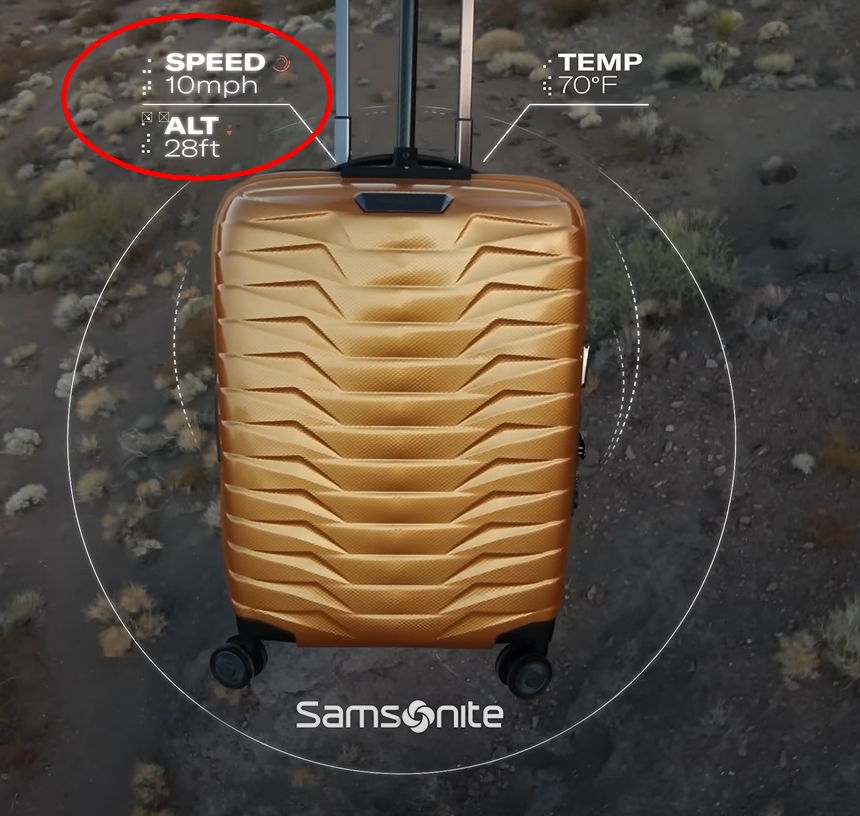
Хоть один выжил бы.
Обидно-с.
Результат: продажи таких чемоданов упали вдвое. Видевшие рекламу связали их с авиакатастрофами.
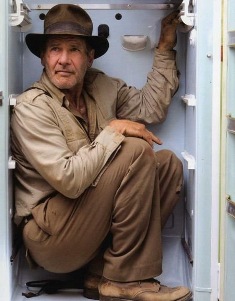
Надеюсь, они его хотя бы не пустым сбросили, а набили чем-нибудь легким и плотным.
А чемоданы у Самсонайт зачётный, и рюкзаки, правда рюкзаки живут не долго, у меня всего десять лет прожил, молния разошлась. 😄
Правда, мой сын туда столько книг пихает, что после этого уже и гири в спортзале поднимать необязательно. Но всё равно, рюкзак стоит престижных денег, а качетсво, скажем так, ну очень среднее.
Два месяца - полет нормальный.
По разному бывает.
Дойтер вообще выпускает широкий ассортимент качественных рюкзаков. Когда из Вены отправлялись по Дунаю в Братиславу, рядом с нашими сидениями расположилась компания немцев, побросав здоровенные походные рюкзаки в уголок на полу. Пригляделся — Deuter. "О, братья по оружию" — подумал я.
P.S. В путешествиях и чемодан на колёсиках беру, разумеется. Очень удобно.
correction: баyл
Вот сейчас взвешал свой большой (размеры около 70х48х30) - 3.7 кг... Что там еще можно напихать чтобы чумадан не прошел в багаж по нормам (где нынче часто 15 кг просют) - даже не знаю.
Поищи статью в твоем любимом Guardian. Там история изобретения чемодана с колесами.
Также интересно, что колесники делают, если булыжная мостовая или трава, по которой Чемодан не едет. Садятся на него и плачут? 😄 Особенная разновидность -- в шлепанцах из самолета зимой, с чемоданами на колесиках.
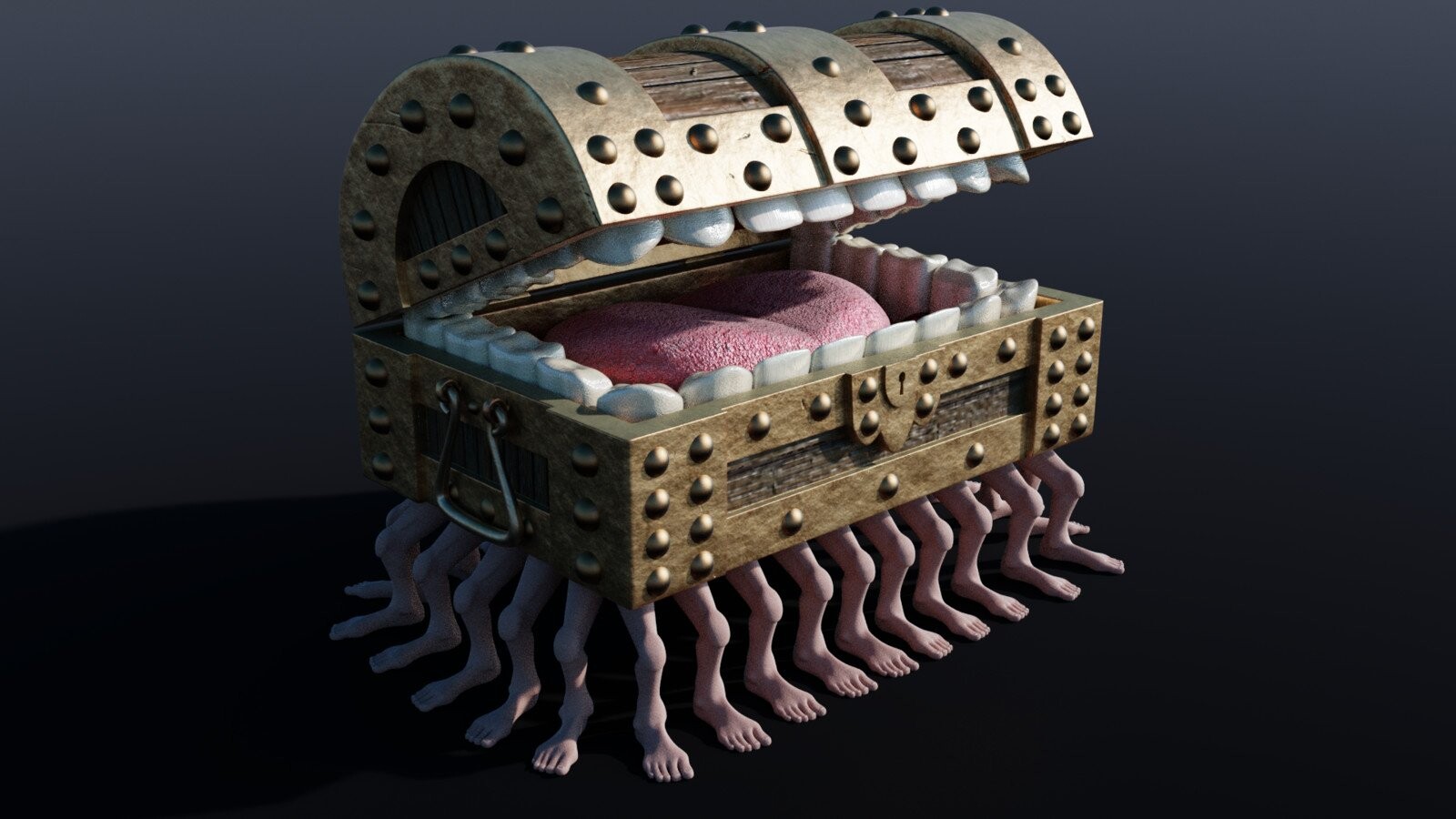
Если перелет через Атлантику, то все 9 часов в зимних ботинках сидеть?
Вот только есть нюанс - путь до такси составляет десятки метров, в то время как по аэропорту можно топать черт знает сколько...
И тут я с вами согласен. Но так никто же и не предлагает.
А вот если маршрут предопределён и это проход по залам аэропорта к стоянке такси или арендованному авто, далее поездка и высадка у дверей отеля, то я не вижу особых слабых мест у чемодана на колёсиках (зато сильных много). А уж если доподлинно известно, что между остановкой автобуса/метро и отелем нет полосы препятствий на пересечённой местности, то и общественный транспорт в эту схему включить можно.
Инструкция есть?
Да и если честно - даже по брусчатке или снегу чеможан на колесиках тащить за собой волоком на полунеедущих колесиках все же проще чем тащить сумку на плече. Да, чемодану от этого плохо - ла и черт с ним
Вот кстати, одна уважаемая фирма даже выпускает специальную ультракомпактную модель Sky Marshall - как раз для этого.

:)
Поэтому я часть сразу, а часть - в чемодан!
А чем плохо-то даже без немощи просто катить чемодан? На кой черт тащить груз, если можно его не тащить? Пусть даже это несложные для взрослого физически развитого человека 15-20 кило на пару сотен метров - зачем, если это не продиктовано желанием лишний раз качнуть мышцы или кому-то что-то продемонстрировать/доказать?
Довольно долго считал, что правильный багаж - это здоровенная сумка с чрезплечным ремнем помимо ручек. Она и легче чемодана и напихать в нее можно до неприличного распухания боками. Примерно те же аргументы применял и к рюкзаку, разве что в меньших масштабах.
А потом как-то дошло, что таскать на себе багаж - нужно только в случае неизбежности оного процесса. Если его можно делегировать чемодану с колесами - это удобней почти во всех отношениях.
Это, конечно, абсурд, достойный карикатурного профессора из юмористических рассказов (вы, кстати, не профессор?). Нормальные люди используют безусловные формулировки в случае, когда вероятность запланированного действия достаточно высока и приближается к единице. Когда получено достаточно информации, и неблагоприятный прогноз составляет мизерную долю процента, я готов рискнуть. Вот такой я безрассудный.
Да.
Если бы он не разбился при падении без парашюта, тогда да, а так... чисто пиар
Да.
Думаю, да, хотя молния очень кондовая -- металлическая и жырная.
У меня простой устаревший Самсонайт без этих вот фирменных рёбрышек жёсткости, купленный по скидке. Так и то он с замками.
ru.m.wikipedia.org
"Превосходя полиэтилен по теплостойкости, полипропилен уступает ему по морозостойкости. Его температура хрупкости (морозостойкости) колеблется от −5 до −15 ºC. "


